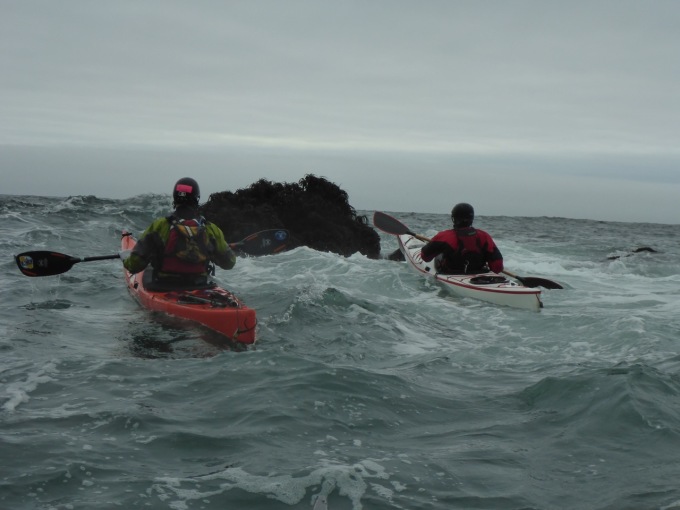
Following are the class choices for each day at Storm Gathering USA 2017.
Friday Session Choices 1 p.m. - 4.30 p.m.
All Levels - Developing Boat Control DBC1
All levels - Surfski Paddling SSP
..................................
Level 1 and 2 - Storm Paddling Essentials SPE
Level 1 and 2 - Surf Zone Fundamentals SZF
..................................
Level 2 and 3 - Intermediate Rock Gardening IRG1
Level 2 and 3 - Unscrambling the Scramble UTS 1
Level 2 and 3 - Long Boat Surfing LBS1
Level 2 and 3 - Short Boat Surfing SBS1
Level 2 and 3 - Moderate Water Boat Handling MWBH 1
..................................
Level 3 - Rough Water Boat Handling RWBH 1
Level 3 - Tricky Launch, Tricky Landing TLTL1
..................................
Saturday Session Choices 9.30 a.m. - 12.30 p.m.
All Levels - Simplifying The Roll STR
All levels - Surfski Paddling SSP
..................................
Level 1 and 2 - Fundamentals of Rock Gardening FRG 1
..................................
Level 2 and 3 - Situational Rolling & Bracing SRB1
..................................
Level 3 - Tricky Launch, Tricky Landing TLTL1
..................................
Saturday Session Choices 1.30 p.m. - 4.30 p.m.
All Levels - Wild Harvesting WH
All Levels - SurkSki Paddling SSP
..................................
Level 1 and 2 - Coastal Journey CJ1
..................................
Level 2 and 3 - Intermediate Rock Gardening IRG2
Level 2 and 3 - Moderate Water Boat Handling MWBH 2
..................................
Level 3 - Rough Water Boat Handling RWBH 2
..................................
Saturday Session Choices All Day
Level 1 and 2 - Fundamentals of Sea Kayak Leadership FSKL
Level 2 and 3 - Practical Leadership and Group Dynamics PLGD
Level 2 and 3 - Incident Management IM
Level 2 and 3 - White Water of The Sea WWOTS
Level 3 - Rock Garden Safety and Rescue RGSR
..................................
Sunday Session Choices 9.30 a.m. - 1.30 p.m.
All Levels - Developing Boat Control DBC1
All levels - Surfski Paddling SSP
..................................
Level 1 and 2 - Fundamentals of Rock Gardening FRG 2
Level 1 and 2 - Coastal Journey CJ2
..................................
Level 2 and 3 - Ocean Journey OCJ1
Level 2 and 3 - Short Boat Surfing SBS
Level 2 and 3 - Unscrambling the Scramble UTS 2
Level 2 and 3 - Situational Rolling and Bracing SRB2
Level 2 and 3 - Long Boat Surfing LBS2
..................................
Level 3 - Rough Water Boat Handling RWBH 3
Level 3 - Tricky Launch, Tricky Landing TLTL2
To register, click HERE.
For more information, e-mail, info@greenlandorbust.org.















